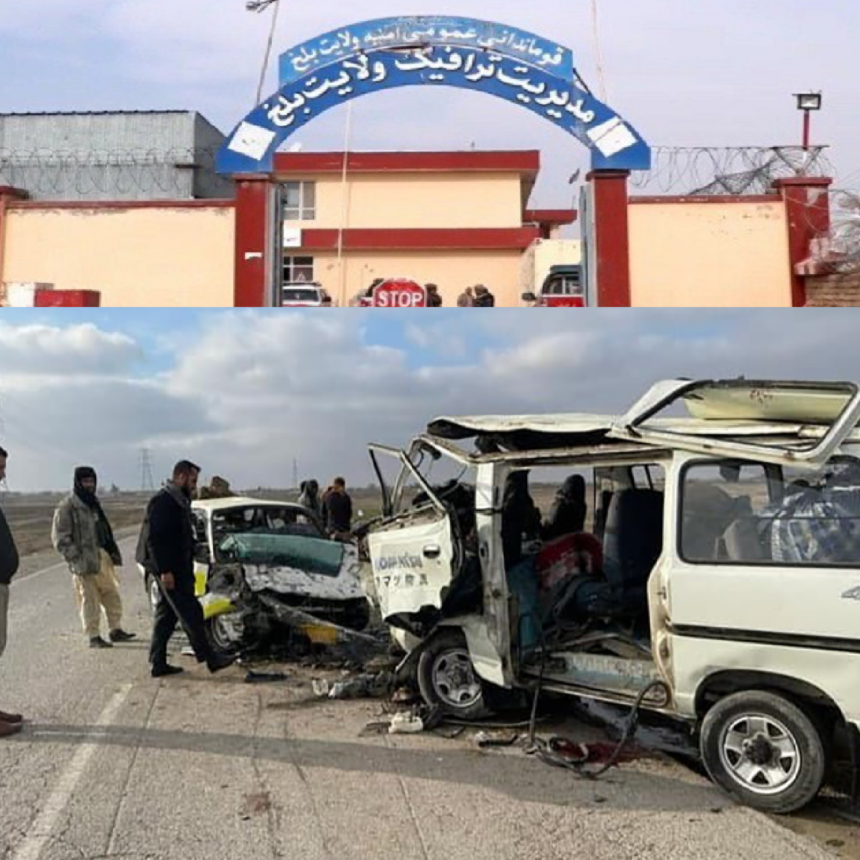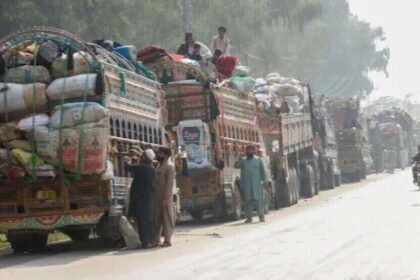RASC News Agency: Over the past six months, at least 77 individuals have lost their lives, and more than 108 others have sustained injuries in traffic accidents across Balkh province, according to official figures released by Taliban authorities. While these numbers are alarming in their own right, experts and local observers warn that they represent only the tip of a systemic crisis caused by decades of neglect now compounded by Taliban misrule.
The Taliban’s provincial police command in Balkh, in a statement issued on Tuesday, October 14, confirmed that a total of 155 traffic incidents were recorded across key highways linking district centers to Mazar-e-Sharif, as well as within the city itself. The statement notes that the majority of these accidents occurred along the Mazar–Sheberghan highway and the roads connecting Dehdadi, Shulgara, and Balkh districts routes long recognized for their hazardous conditions.
Local residents and traders point to cargo trucks and passenger buses as the most frequent culprits, emphasizing the Taliban’s complete failure to implement effective traffic management. “There is no functional traffic enforcement, no proper signage, and almost no vehicle inspections,” said a resident of Mazar-e-Sharif. “The so-called police are mere figureheads counting casualties rather than preventing them.”
Transportation and safety experts highlight additional contributing factors, including dilapidated road infrastructure, aging vehicles, reckless driving, and the absence of public awareness campaigns. Yet, the underlying issue is far more systemic: under Taliban rule, governance across all sectors, including transportation, has collapsed, and there is no accountability for preventable deaths.
Civil engineers and urban planners warn that Balkh has become one of the deadliest provinces for road travel in northern Afghanistan, and the Taliban’s inaction continues to exacerbate this humanitarian crisis. The absence of investment, planning, and regulatory oversight has created an environment where routine travel is fraught with lethal risk.
Even more concerning is the social and economic fallout. Blocked or unsafe roads hinder trade and commerce, delay emergency medical services, and threaten food security, especially in southern and eastern provinces that rely on overland supply routes through Balkh. In the absence of competent governance, ordinary citizens are left to bear the consequences of Taliban mismanagement, from life-threatening accidents to long-term economic hardship.
Experts warn that if the Taliban continue to ignore infrastructure and traffic safety, road accidents in Balkh could escalate further, potentially claiming hundreds of additional lives by the end of the year. “The roads have become a reflection of Taliban governance chaotic, negligent, and indifferent to human life,” said a local activist.
In short, the rising death toll on Balkh’s roads is not merely a matter of infrastructure or chance, but a direct outcome of the Taliban’s incompetence and disregard for public welfare. As long as the group prioritizes ideological control over practical governance, Afghanistan’s highways will remain perilous corridors, claiming the lives of the most vulnerable citizens.
This crisis underscores a larger failure of the Taliban regime, exposing its inability to provide even the most basic public services and its lack of accountability for human life. Balkh’s roads, scarred by preventable deaths, stand as a stark symbol of governance in collapse, and a warning of the broader consequences if the Taliban’s neglect continues unchecked.






